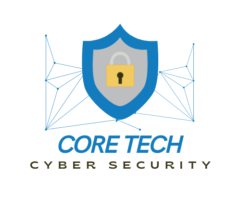With the growing demand for cybersecurity professionals, selecting the right cybersecurity course is critical for career advancement. Whether you’re a beginner or an experienced professional, the variety of cybersecurity courses available today can make choosing the right one overwhelming. Here’s a guide to help you navigate the options and find the perfect cybersecurity course to match your needs.
1. Define Your Career Goals
Before diving into any cybersecurity course, it’s essential to identify your career goals. Are you looking to start a career in cybersecurity, specialize in a specific area like ethical hacking, or earn an advanced certification to move up in your current role? Knowing your goals will help you select a cybersecurity course that aligns with your aspirations.
Beginner-Level Courses
For those just starting, foundational cybersecurity courses like CompTIA Security+ or Certified Information Systems Security Professional (CISSP) offer comprehensive overviews of cybersecurity principles. These courses provide a solid base for roles like security analysts or IT security professionals.
Advanced Certifications
If you’re already in the field and looking to specialize, consider courses like the Certified Ethical Hacker (CEH) or Certified Information Security Manager (CISM). These courses delve deeper into specific areas, such as penetration testing or security management, making them ideal for professionals with several years of experience.
2. Free vs. Paid Cybersecurity Courses
Another factor to consider is whether to opt for a free or paid cybersecurity course. While free courses are ideal for beginners or those on a budget, paid courses often offer more comprehensive content, instructor support, and widely recognized certifications.
Free Courses
Free cybersecurity courses are perfect for gaining basic knowledge and testing the waters. Platforms like Cybrary and Coursera offer free access to various cybersecurity training modules. However, these often lack in-depth content or certifications, which may be essential for job applications.
Paid Courses
Paid cybersecurity courses usually provide extensive material, practical labs, and accredited certifications that are recognized by employers. Courses like CompTIA Security+ and Certified Ethical Hacker (CEH) are popular paid options that offer in-depth learning and tangible career benefits.
3. Consider Course Content and Focus
The field of cybersecurity is vast, covering areas like network security, ethical hacking, digital forensics, and more. When choosing a cybersecurity course, look at the course content and decide if it aligns with your interests or career path.
Popular Course Specializations:
- Ethical Hacking and Penetration Testing: Courses like Certified Ethical Hacker (CEH) focus on identifying and exploiting vulnerabilities to improve system security.
- Network Security: Certifications like CompTIA Security+ focus on securing network infrastructures.
- Security Management: Courses like Certified Information Security Manager (CISM) prepare professionals for leadership roles in managing security teams and policies.
4. Accreditation and Recognition
If you plan to use the course certification for career advancement or job applications, make sure the course is accredited and widely recognized. Certifications like CompTIA Security+, Certified Ethical Hacker (CEH), and Certified Information Systems Security Professional (CISSP) are globally recognized and often required by employers for specific roles.
5. Practical Labs and Hands-On Learning
Cybersecurity is a highly practical field, and hands-on experience is crucial. Look for cybersecurity courses that offer practical labs, simulations, and real-world scenarios to test your skills. Many advanced paid courses provide access to virtual labs where you can practice network defense, penetration testing, and incident response.
6. Instructor Support and Community
When enrolling in a cybersecurity course, especially if it’s a paid one, consider the level of instructor support and access to a community of learners. Many paid courses offer one-on-one mentoring, forums, and access to industry professionals, which can be invaluable for networking and deeper understanding.
Conclusion
Choosing the right cybersecurity course depends on your career goals, current skill level, and the specific area of cybersecurity you want to focus on. Whether you’re just starting with a free course or investing in an advanced certification, the right course can open doors to exciting career opportunities in the growing field of cybersecurity.
